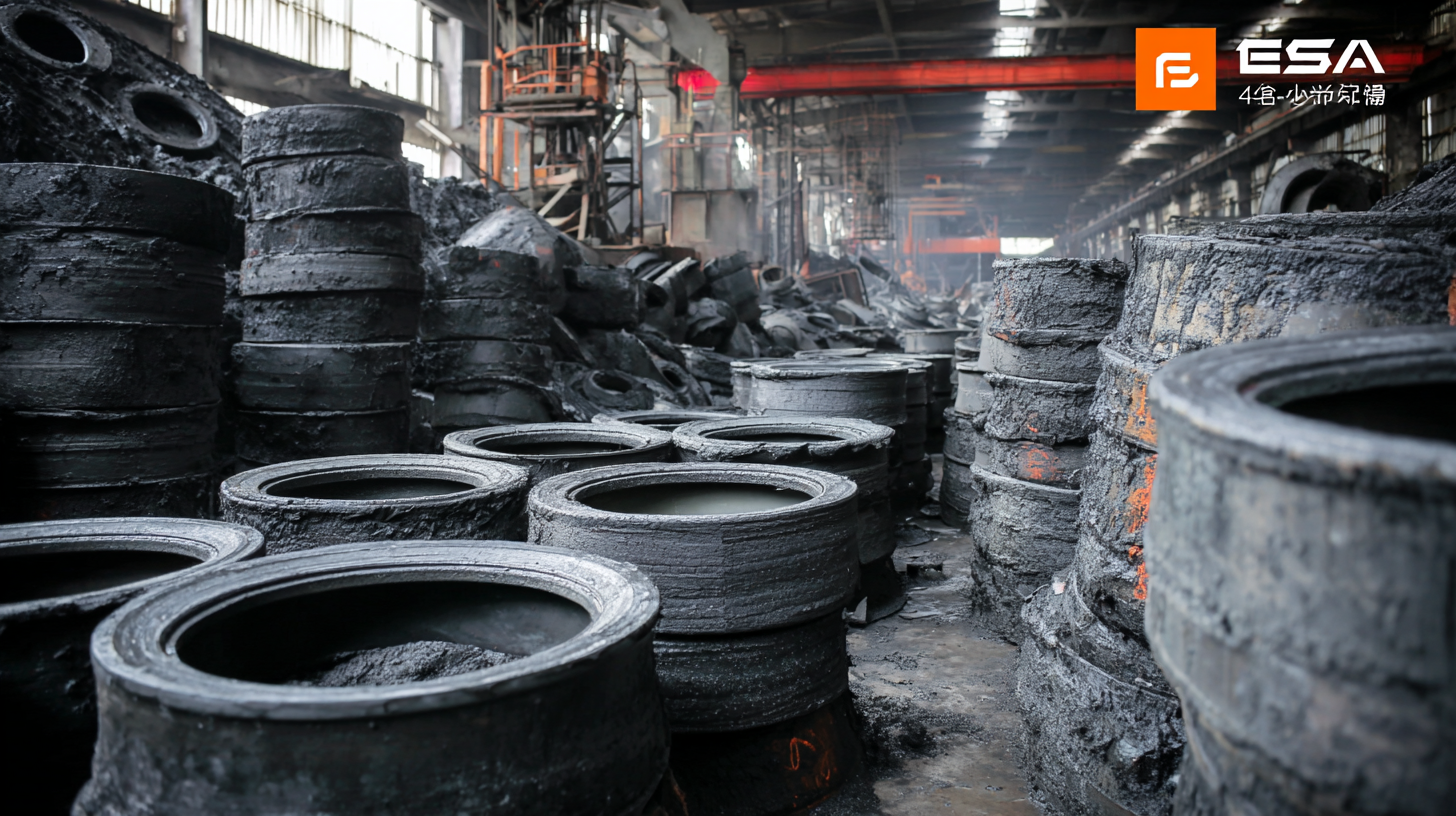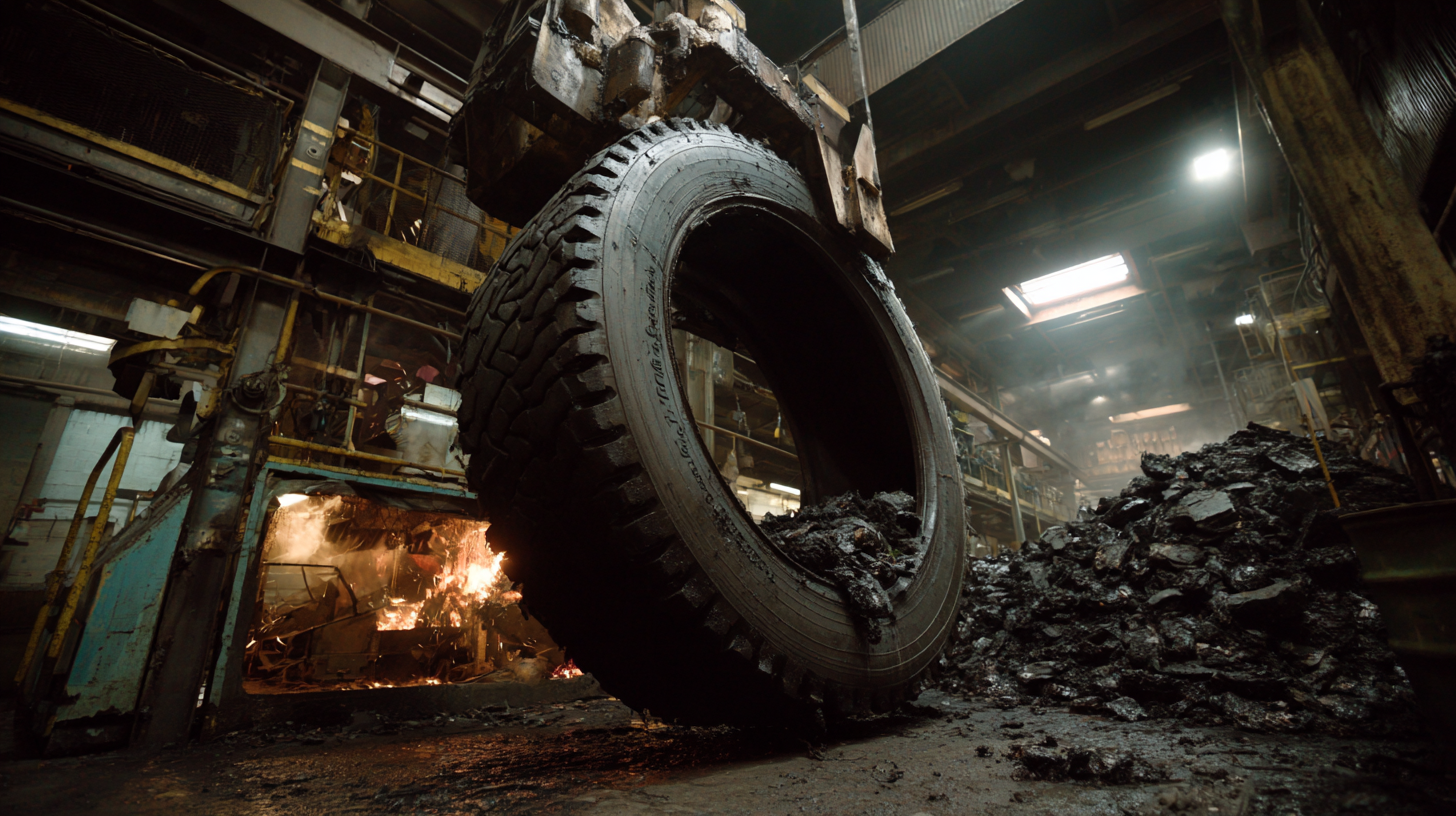In the rapidly evolving world of waste management and recycling, selecting the right manufacturer for a rubber tire shredder is crucial for businesses aiming to optimize their operations and drive sustainability. As we approach 2025, industry trends indicate a growing emphasis on innovation, efficiency, and environmental impact. With an increasing number of manufacturers entering the market, it becomes imperative to distinguish top quality options that meet rigorous performance standards. This comprehensive guide aims to equip you with essential insights on how to identify the best manufacturers for rubber tire shredders, highlighting key features to consider, the latest technological advancements, and industry best practices that can significantly enhance your recycling processes. By the end, you'll be empowered to make informed decisions that align with your operational goals and contribute positively to the environment.

When selecting a high-quality rubber tire shredder, it's crucial to identify key features that ensure efficiency and performance in processing. One of the most significant features to look for is the shredding capacity, which dictates how many tires can be processed within a given time. Manufacturers that offer robust shredders typically provide varied capacity options, allowing businesses to scale their operations according to demand. Additionally, the durability of the machine parts, especially the blades, is essential as it affects both the effectiveness of shredding and the operational lifespan of the equipment.

Another critical aspect is the technology utilized in the shredder design. Advanced manufacturers are increasingly incorporating innovative technologies that enhance processing efficiency while minimizing energy consumption. These may include adjustable speed settings and automated controls that optimize operations based on the type of material being processed. As demonstrated at recent industry events, such as the latest trade shows showcasing advanced manufacturing capabilities, adopting state-of-the-art technology in machinery can significantly lead to better performance and increased competitiveness in the market. When choosing a manufacturer, consider their commitment to innovation and support to ensure you acquire a rubber tire shredder that meets your operational needs effectively.
When selecting a rubber tire shredder, one of the most crucial factors to consider is the manufacturer’s certifications. Certifications serve as a testament to the manufacturer's commitment to quality, safety, and environmental standards. In an industry where efficiency and reliability are paramount, certifications such as ISO 9001 and CE indicate that the manufacturer adheres to stringent quality management systems. This ensures that the products they deliver not only meet but often exceed industry expectations, providing peace of mind for buyers.
Moreover, certifications can also reflect a manufacturer’s dedication to sustainability practices. In an era where environmental considerations are often at the forefront of business decisions, suppliers with certifications like ISO 14001 can demonstrate their efforts to minimize waste and reduce the ecological footprint of their operations. By opting for manufacturers who prioritize certifications, buyers can be more confident in their choice, knowing that the equipment they invest in complies with vital industry regulations and aligns with eco-friendly practices. In summary, assessing these credentials is a critical step in ensuring that you choose a high-quality rubber tire shredder that meets both performance and sustainability goals.
| Manufacturer Location | Certification Type | Production Capacity (Units/Month) | Years in Business | Customer Satisfaction Rating |
|---|---|---|---|---|
| USA | ISO 9001 | 500 | 10 | 4.5/5 |
| Germany | CE Mark | 750 | 15 | 4.7/5 |
| China | ISO 14001 | 1000 | 20 | 4.2/5 |
| Japan | JIS Certified | 600 | 12 | 4.6/5 |
| Brazil | SA8000 | 400 | 8 | 4.3/5 |
Recent advancements in tire technology are playing a crucial role in enhancing the performance of rubber tire shredders. One of the significant developments is the integration of sustainable materials such as renewable rubbers, which not only improve the performance of tires but also facilitate more efficient shredding processes. By adopting these eco-friendly materials, manufacturers are not only meeting regulatory requirements but also responding to consumer preferences for greener products.

Moreover, the tire recycling market is projected to witness substantial growth, driven by innovative technologies that optimize waste tire valorization. Techniques such as advanced processing simulations and system optimizations are crucial in addressing the environmental challenges posed by the accumulation of waste tires. As the global demand for effective tire recycling solutions increases, the focus on these technological advancements will undoubtedly enhance the overall efficiency and sustainability of tire shredding operations, making it an exciting time for manufacturers in this vital sector.
The tire recycling market is experiencing significant growth, projected to reach USD 8.32 billion by 2032, with a compound annual growth rate (CAGR) of 3.7%. This surge is largely driven by the increasing emphasis on sustainable waste management practices across the globe. A recent report by Custom Market Insights highlights that the automotive tires industry is also on an upward trajectory, expected to grow from USD 138 billion in 2023 to USD 192 billion by 2031, further supporting the need for innovative recycling solutions.
In the United States alone, the tire and rubber recycling market is anticipated to expand from USD 2.06 billion in 2024 to USD 2.84 billion by 2032, with a CAGR of 4.2%. This growth underlines a shift towards more sustainable practices as manufacturers and consumers alike are becoming more aware of environmental impacts. The rising demand for sustainable tire materials is evident, with the sustainable tire materials market expected to grow from USD 24.32 billion in 2023 to USD 27.41 billion in 2024, reflecting a robust CAGR of 14.64% during this period. These trends indicate an ongoing transition in the industry towards greener solutions, emphasizing the critical role of tire shredders in recycling operations.
When selecting a rubber tire shredder, the reputation of the manufacturer plays a crucial role in determining the reliability and serviceability of the equipment. A recent industry analysis indicates that 65% of operators experience higher downtime when purchasing from lesser-known manufacturers due to inadequate service and support. Established manufacturers often invest in better quality control processes and customer feedback systems, ensuring that their shredders not only meet but exceed industry standards.
Tips for Buyers: Always conduct thorough research on potential manufacturers. Look for industry certifications, customer testimonials, and case studies that highlight their track record in producing high-quality tire shredders. A reputable manufacturer should also offer comprehensive warranty terms and readily available parts.
Another essential aspect to consider is the manufacturer's commitment to innovation. According to a report by the Tire Shredding Association, companies that consistently invest at least 10% of their revenue in research and development report 30% fewer product failures. This investment translates into more reliable equipment and better after-sales service, which is vital for maintaining operational efficiency.
Tips for Buyers: Engage with manufacturers directly to assess their response times and service capabilities. A proactive approach to customer service is often an indicator of a company’s reliability and dedication to its products.
